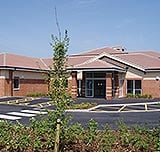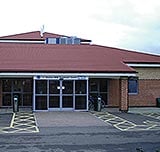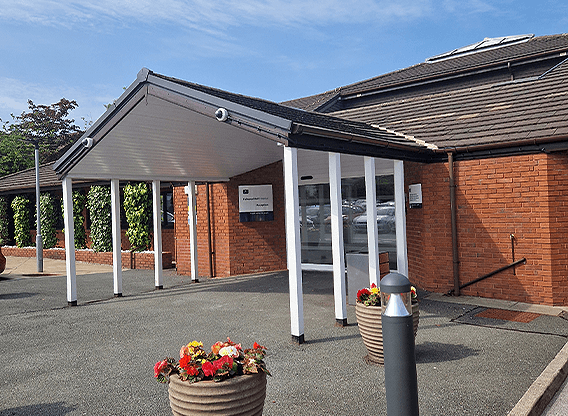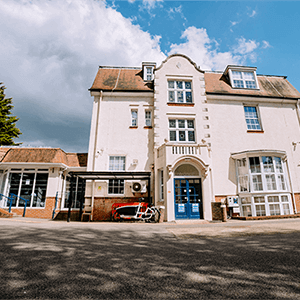

Mr Bimal Kumar
Mr Bimal Kumar is a Consultant Ophthalmologist at Blakelands Hospital, Milton Keynes who specialises in Oculoplastic surgery.
View ProfileCataracts are a clouding of the lens of the eye which can cause reduced vision and glare around lights and can deteriorate over time.
Cataract surgery is a common day case procedure that replaces the cloudy cataract lens with a new, artificial lens to improve sight.
Surgery is recommended if your vision problems are interfering with your daily life activities and quality of life, preventing you from doing the things you love, hobbies etc.
From birth, our eyes have a clear lens which is made up of a unique balance of water and protein working in tandem to allow light to pass through the eye. As we age, the quality of the protein degrades and can gather together in clusters. This makes it harder for the light to pass through the protein, and consequently the lens causing a cataract which reduces vision and makes things a bit blurrier.
How a cataract looks to the person with a cataract
How the eye looks to others:
There are many different types of cataracts, each affecting different parts of the eye's lens and developing for different reasons. The main types are:
There are also particular types of cataracts that can affect young children, but the occurrence is rare. Congenital cataracts are usually present when a baby is born, or juvenile cataracts may be diagnosed in older babies and children. For babies and children, it is vital to spot cataracts early in order to avoid severe long-term complications, including blindness.
Cataracts are generally not painful, in most cases. The clouding of the lens caused by cataracts doesn’t produce any physical discomfort in the eye. Symptoms primarily involve gradual changes in vision, such as blurriness, increased glare sensitivity, and dimming colours.
In advanced cases, the eye might become sensitive to light, which can feel uncomfortable in bright environments.
When cataracts first develop you may not be aware of any issues with your eyesight. However, as a cataract progresses, it will begin to distort the light that passes through the lens into the back of your eye. It is then you will begin to notice problems with your vision – you will start experiencing cataract symptoms.
Cataract symptoms include:
Cataracts develop when proteins in the eye’s lens break down and clump together, causing clouding of the lens. Here are common causes and contributing factors:
Risk factors for developing cataracts fall into four main groups which are environmental, lifestyle, medical, and genetic.
Environmental risk factors - Trauma, UV radiation
Lifestyle risk factors - Smoking, alcohol, ageing
Medical risk factors - Steriod use, diabetes, radiotherapy, eye surgery and eye inflammation
Genetic risk factors - Family history and certain genetic conditions
A vision chart is used to measure visual acuity and detect any reduction in vision.
Slit lamp ocular examination is done to confirm presence of cataracts and exclude other causes of reduced vision by checking the retina after pupil dilation.
OCT scan is done to exclude retinal pathology.
Biometry is done to measure the length of your eye and curvature of the window of your eye so that lens implant power can be calculated.
There are a lot of different factors which can increase your risk of cataracts, whilst some are unavoidable such as age and underlying health conditions, the majority can be prevented with a change of lifestyle. There are three straightforward ways in which you can combat the causes of cataracts whilst also improving your quality of life.
Here are some helpful tips for individuals living with cataracts to manage their daily activities and improve their quality of life while awaiting treatment or surgery.
Surgery is the most effective treatment for cataracts and is usually recommended if your vision problems are interfering with your daily life activities and quality of life, preventing you from doing the things you love, hobbies etc.
Here are Ramsay we treat patients with many eye conditions. Our skilled ophthalmologists use the best practices and offer the latest treatments including cataract surgery based on your individual needs and diagnosis.
Find out more about cataract surgery which is offered across our hospitals here.
They can reduce vision and may effect your ability to carry out daily activities. However, they usually progress slowly and can be treated with surgery.
Effect on vision depends on the type of cataract but it usually presents like looking through a dirty window (blurry vision).You may have difficulty recognizing faces, watching tv or reading and you may have visual disturbances around lights such as glare, haloes or star burst.
Most cataracts progress slowly over years but some types can progress relatively quickly over a few months.
Some types of cataracts (eg posterior subcapsular cataract) can worsen relatively quickly in poorly controlled diabetics, or patients taking steroid treatment.

Mr Bimal Kumar is a Consultant Ophthalmologist at Blakelands Hospital, Milton Keynes who specialises in Oculoplastic surgery.
View Profile






















The information, including but not limited to, text, graphics, images and other material, contained on this website is for educational purposes only and not intended to be a substitute for medical advice, diagnosis or treatment. Always seek the advice of your physician or other qualified health care provider with any questions you may have regarding a medical condition or treatment.
No warranty or guarantee is made that the information contained on this website is complete or accurate in every respect. The testimonials, statements, and opinions presented on our website are applicable to the individuals depicted. Results will vary and may not be representative of the experience of others. Prior patient results are only provided as examples of what may be achievable. Individual results will vary and no guarantee is stated or implied by any photo use or any statement on this website.
Ramsay is a trusted provider of plastic or reconstructive surgery treatments as a part of our wrap-around holistic patient care. Our personal, friendly and professional team are here to support you throughout to ensure the best possible care. All procedures we perform are clinically justified.
*Acceptance is subject to status. Terms and conditions apply. Ramsay Health Care UK Operations Limited is authorised and regulated by the Financial Conduct authority under FRN 702886. Ramsay Healthcare UK Operations is acting as a credit broker to Chrysalis Finance Limited.
Ramsay Health Care UK is not currently recruiting for any roles based outside of England. If you are interested in applying for a role with Ramsay Health Care UK, please note that all available positions are advertised exclusively on our official website: https://www.ramsayhealth.co.uk/careers. Be cautious of individuals or organisations that approach you directly for remotely-based roles. Always verify the authenticity of the job offer and be careful with whom you share your personal information. For more information and advice on employment fraud, please visit: https://www.ramsayhealth.co.uk/careers/recruitment-fraud